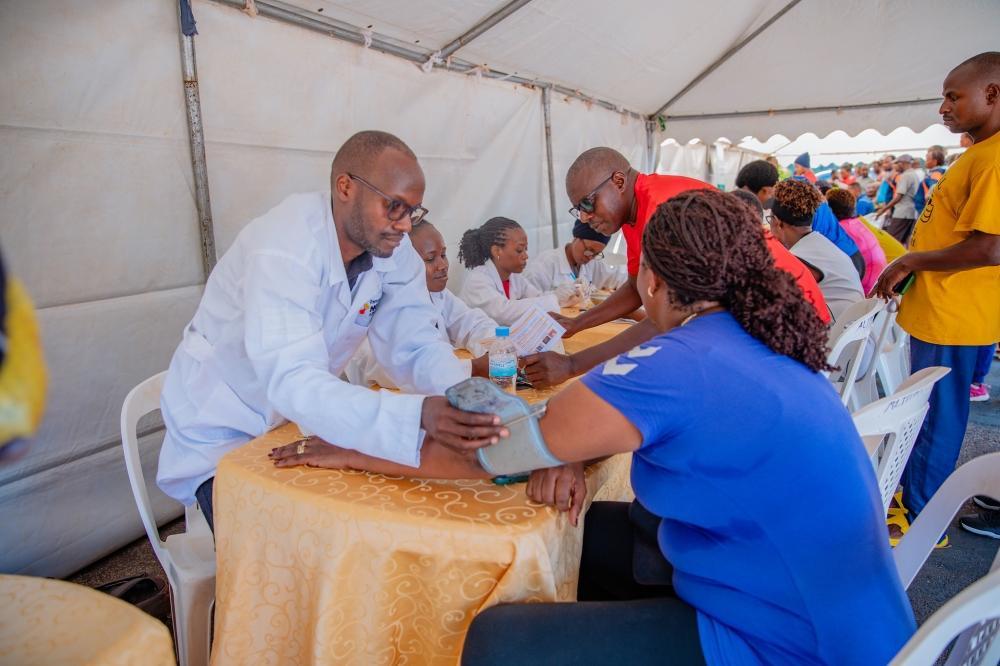Africa-Press – South-Africa. I grew up with diabetes around me. My grandmother had type 2 diabetes, and my brother had type 1 diabetes. Both conditions involve high blood sugar, but they differ in their causes and treatments. Little did I know this would influence my career in medicine and research on chronic diseases like diabetes, hypertension, and cancer.
Since November is Diabetes Awareness Month, I want to share what I learned about diabetes from living so close to it in my own family, hospital wards, and laboratories.
My family lived in the village, and my grandmother lived next door. She was quite obese. She owned cows, and milk was her main drink. I loved visiting her every day to sip her sweet milk tea because she was very generous with sugar.
I don’t remember the details of her diabetes diagnosis. All I remember is seeing her taking diabetes pills every morning and evening. Some years later, my mother started giving my grandmother her prescribed insulin injections. I later learned she had type 2 diabetes, a condition in which blood sugar is higher than normal because the body doesn’t respond properly to insulin, a hormone that decreases blood sugar.
I now look back and realize my grandmother had some of the factors that increase the risk of type 2 diabetes: age above 45, being overweight, consuming too much sugar, and inadequate physical activity. Other risk factors for diabetes include excessive alcohol consumption, stress, poor sleep, and having relatives who have had diabetes.
Over the 20 years she lived with diabetes, my grandmother’s condition worsened. She developed pain in her legs, could no longer go to her farm, lost most of her teeth, and gained more weight. She also once lost consciousness, leading to hospitalization. She lost consciousness because her diabetes medication caused her blood sugar to drop too low after she had eaten a low-sugar meal.
I now know her diabetes was not well-controlled. She had started skipping her monthly medical follow-ups. She was taking medication but rarely checked her blood sugar levels.
Unlike my grandmother, my brother developed diabetes in his early 20s. It started with increased thirst, urinating a lot even at night, feeling tired all the time, and weight loss. He went to the hospital. The doctor ran tests and told him he had diabetes. He couldn’t believe it. He was a young man with big dreams, exercised regularly, and was not obese. He neither smoked nor drank alcohol. He resolved to beat diabetes.
He never took the prescribed medications. He preferred to change his lifestyle by adopting a low-sugar diet and increasing his exercise. His condition improved, but he did not get better.
A few months later, the unquenchable thirst and frequent urination came back. He lost his appetite, had abdominal pain, and started breathing heavily, as if struggling to force something heavy from his lungs. He went back to the hospital. The doctor found his blood sugar extremely high and that he had lost too much water. He put him on intravenous fluids and insulin injections to decrease his blood sugar.
Laboratory tests confirmed my brother had type 1 diabetes. This is a condition where blood sugar is higher than normal because the body does not produce enough insulin. It happens when the immune system erroneously attacks the pancreas, an organ that produces insulin. Unlike type 2 diabetes, type 1 often starts early in life. Some children develop it just days after birth.
I now know my brother had developed “diabetic ketoacidosis,” a condition in which the lack of insulin makes the body switch from using sugar for energy to using fats, leading to the accumulation of toxic, acidic chemicals called ketone bodies. This can lead to loss of consciousness in people with type 1 diabetes.
After confirming his diagnosis, my brother started daily insulin injections, routine blood sugar checks, and regular medical follow-ups. His health improved dramatically.
Diabetes can affect anyone at any age. Prevention starts with awareness and the adoption of a healthy lifestyle. If you have diabetes, you can control your blood sugar, prevent complications, and lead a long, healthy life through regular check-ups and adherence to treatment.
The author is a medical doctor, global health professional, and researcher on non-communicable diseases at the University of Global Health Equity.
For More News And Analysis About South-Africa Follow Africa-Press






